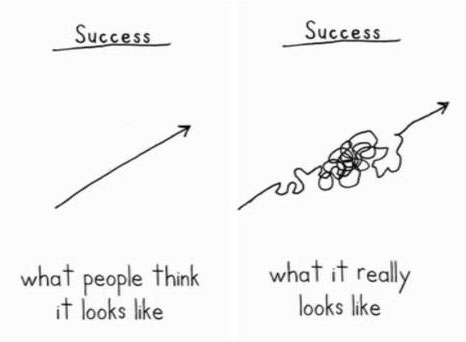
The business of music is often anathema to artists.
Equal parts strategy and schmoozing, some do one well but fall down on the other. Whatever strengths an individual artist brings to the table, putting in the effort to fill the gaps is a vital factor in a successful music career.
This recent piece by Ari Herstand on music networking reminded me of the importance of the musician as entrepreneur, treating your band as a business, positioning your creations as a calculated career move.
All of which sounds appalling to many of you, I know, so let me re-frame this in terms that should make it more palatable.
Alternative Applications of Creativity
As a creator, you already own the most fundamental tool to entrepreneurial endeavor.
The ability to imagine and let your ideas follow their own path is one that many finely-tuned business minds struggle with on a daily basis. One need only review the many traditionally successful media giants floundering for a foothold in today’s digital world to understand that creativity, experimentation, and a willingness to breach boundaries are almost prerequisites for advancement in the shifting sands of this environment.
They are also traits synonymous with successful entrepreneurs.
Entrepreneurs ask “what if?“, rather than “what for?”
Entrepreneurs view obstacles as a creative challenge, not a cause to complain.
And entrepreneurs have a guiding passion that fuels them when the path isn’t clear, keeping faith in the greater good of what they’re trying to achieve, even in the face of frequent setbacks.
I don’t know about you, but to me these characteristics also sound a lot like those of successful artists.
Embrace Your Entrepreneurship
Not merely accepting, but embracing the fact that you can apply an entrepreneur’s outlook to your art will expand the horizons of your music career.
Viewing networking not as a chore, but as an opportunity to connect with and to help others who may one day help you, revives your enthusiasm for events and can open new doors. Understanding and accepting the fluctuating revenue streams of the music industry as a creative challenge will open your eyes to potential new sources of income. Taking time to develop a cohesive approach to communicating with your listeners will help to develop life-long fans.
While some artists choose to stick their heads in the sand and complain about the latest ostensibly unfair practice of a music business gone digital, musicians with a broader, entrepreneurial perspective can do the work and climb to the top of their game. As even the notoriously crusty major record labels begin to explore the opportunities presented to them by new technology, rising artists cannot afford to be left behind in a self-indulgent stupor.
Understand your industry and be prepared to poke into every new nook and cranny for the opportunities that are being created. When you spot an early entry point to exploit the next big shift, you’ll be glad you chose to get into the game, rather than standing on the sidelines.





